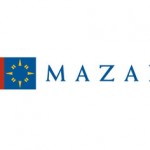Invoice fraud costs developing countries billions

Some developing countries are losing as much as 67% of their exports to invoice fraud, according to research commissioned by the United Nations (UN), which claims that the over-and-under invoicing of trade transactions over the past two decades has facilitated billions of US dollars in illicit financial flows into or out of some developing nations
The study was released during the UN Conference on Trade and Development (UNCTAD) in Kenya, and is based on work by Leonce Ndikumana, a professor of economics at the University of Massachusetts.
He looked at so-called ‘trade mis-invoicing’ in relation to Chilean and Zambian copper, Cote d’Ivoirean cocoa, Nigerian oil, and South African metals. Mis-invoicing is the deliberate misreporting of the value of a commercial transaction on an invoice submitted to customs. As a result, countries lose valuable foreign exchange earnings, taxes and income that might otherwise be spent on development, UNCTAD says.
Ndikumana said analysis of almost 20 years’ worth of data from the five countries in the study suggested the issue went much wider than simply statistical errors, which he said do not normally have a trend and do not continue to grow.
‘The implication is that it is the operators who are explicitly manipulating the invoices. There has to be complicity on both sides. There’s a serious lack of transparency on both sides,’ he said.
The study calculates that between 2000 and 2014, under-invoicing of gold exports from South Africa amounted to $78.2bn (£59bn), or 67% of total gold exports. The analysis shows patterns of trade mis-invoicing for exports to China, Germany, Hong Kong India, Italy, Japan, the Netherlands, Spain, Switzerland, the UK, the US and others.
Between 1996 and 2014, under-invoicing of oil exports from Nigeria to the US was worth $69.8bn, or 24.9% of all oil exports to the US, according to the figures. The report suggests that between 1995 and 2014, Zambia recorded $28.9bn in copper exports to Switzerland, more than half of all its copper exports, yet these exports did not appear in Switzerland’s books.
UNCTAD also reckons that between 1990 and 2014, Chile recorded $16bn in copper exports to the Netherlands, but these exports did not appear in the Netherlands’ books. Between 1995 and 2014, Côte d’Ivoire recorded $17.2bn in cocoa exports to the Netherlands, of which $5bn or 31%, is not recorded.
Mukhisa Kituyi, UNCTAD’s secretary-general, said: ‘This research provides new detail on the magnitude of this issue, made even worse by the fact that some developing countries depend on just a handful of commodities for their health and education budgets.’
He said commodity exports may account for up to 90% of a developing country’s total export earnings, adding that the study generated fresh lines of inquiry to understand the problem of illicit trade flows.
Source: CCH Daily





























